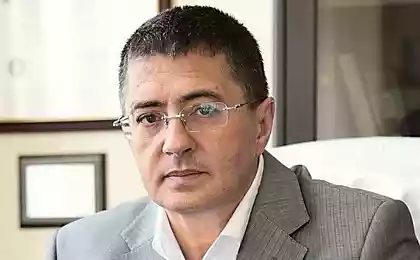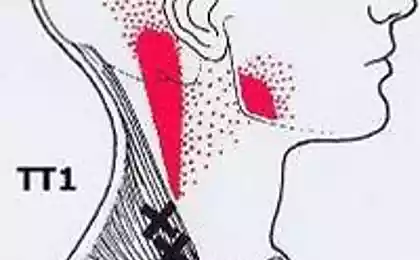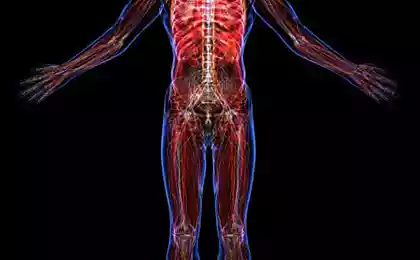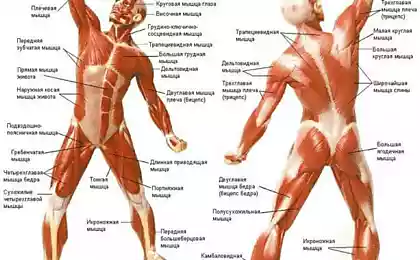525
Vegetative-vascular dystonia, in terms of neurophysiology
In this article I will try to detail and at the same time from the standpoint of the integrity of to describe all the processes that occur in the human brain with autonomic dysfunction. For this conditional highlight in the regulation of body functions on three levels. The lower and primitive level is the autonomic nervous system, which ensures the constancy of the internal environment of the body, the constancy of temperature, composition and pressure of blood, oxygenation, digestion and absorption of food, immune system, and so forth .
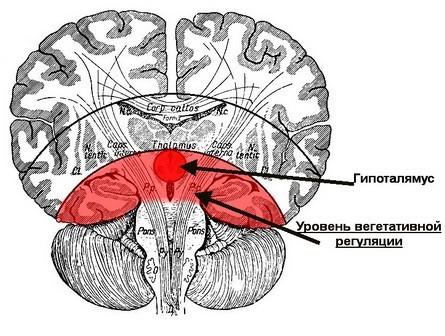
This system works even when the person is in a coma. Or when a body part is paralyzed due to a spinal injury. That is absolutely Autonomous life support system of the person. She, like a good caretaker, prepares our body for any war and any events outside. This system is divided into sympathetic and parasympathetic. PSNS responsible for the stability, rest, restoration and recovery. And the sympathetic nervous system is responsible for the establishment and maintenance of boundaries in the interaction with the external environment and any novelty. But, consequently, its activity interferes with rest and recovery.
We know a huge number of people who have broken the balance of the sympathetic and parasympathetic systems. Doctors often make the diagnosis of VSD (or NDCs). I call it the disease of regulation. In extreme cases of autonomic arousal, we often get panic attacks and hypertensive crises. As well as many various psychosomatic diseases related to the blood vessels, heart, immune system and so on.
The second level of regulation is the limbic system which is responsible for our emotions and passions.
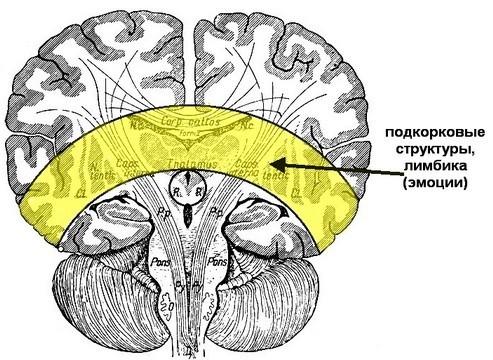
She is anatomically located over the autonomic system and strongly affects it. For example, if a person is angry, the Autonomous system receives the signal: "fight!".
As good surround the caretaker, she immediately begins to reallocate resources and prepare the body for fight or flight: dramatically constrict some vessels and dilate others, the blood flow to the muscles, slows down digestion, activates Dukhanina, releases glycogen from the liver, and so on.
In our real urban life I will not run and no one to fight. Most likely, I have to pretend that all is well and conceal your true feelings, to no one guessed. For example, if yells at me head. Then in my body there are two powerful, oppositely directed process. The most primitive animal part of preparing for war, and the cortex (higher brain deyatelnosti) prohibits action through arbitrary regulation orders to hide the consequences of such training that others do not have guessed what a storm is raging inside of me.
How to hide it? With all the forces squeeze the edges to hold the breath, tense press, shoulder muscles, circular muscles of eyes, jaw, etc. a Huge amount of energy containment is to not give out the internal storm and vegetatio unsuspectingly continues to raise the pressure and accelerate the heart, for example, was able to suppress it, or, finally, you can leave the office and head in the toilet to smoke or to blow off steam, norev to their employees.
Just then may "grab the heart" because it is highly stimulated, and oxygen for its activity is not getting. T we recall that the squeezed ribs and holding your breath so as not to give his excitement to others. It's like simultaneously press the car gas and on the brake.
If you do so often, the natural regulation is violated. On the one hand with good training not to show his anger becomes easier and easier.Many may pretend to be a spy. On the other hand the heart lacks more and more. Blood pressure starts to gallop, it is necessary to drink a sedative and antihypertensive medications.
In the described example, plays an important role and the third level of regulation is our higher nervous activity. That's the one that decides that here and now need to be a spy and not to show their feelings. And, of course, affect GNI and limbic and SIMATIC.
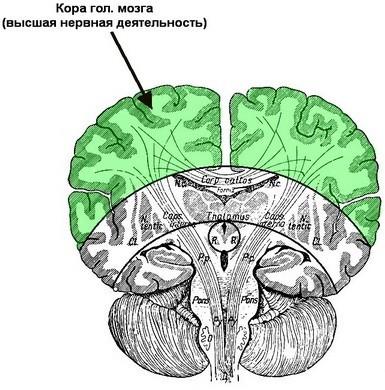
Thus, in diseases of the regulation, or IRR, the problem usually is on all three levels.
1) On the vegetative level we often have an increased sensitivity to the sun, noise, heat, cold etc. it is Possible that some of this is due to innate characteristics, something derived from a family role, some features of traumatic origin, or the result of environmental influences in childhood.
2) On the emotional level we are talking primarily about the basic innate emotions and passions. In a healthy option emotions are based on signals from receptors in the body. If the child is uncomfortable, he cries. If the animal is hurt, it gets angry and defensive. On the basis of such signals from the body and from the senses, the child forms the idea of the external environment where the distance becomes dangerous. And on what distance it is safe and it is interesting to observe a particular phenomenon.
The system signals about opasnosti/security and psychological boundaries of a person. We rarely notice these sensations. But when they have formed into emotions we already understand that something is wrong. Emotions and feelings are signals to the cortex that a certain requirement is satisfied or not satisfied. For us it is particularly important the connection between body sensations, emotions, feelings and ideas about these feelings in our experience, as well as behavioral actions. Often this relationship the child is not formed, and became a grown man he can do any action (e.g., curiosity) to be perceived as sexy. Or the woman believed that she had shortness of breath from asthma, and it was an orgasm.
At VSD we see very often, such violations may be caused by the lack of development of these relations, or an injury that destroyed the links between the different parts of our psyche.
3) At the level of GNI are all our acquired reflexes that were once adaptive, but now it's become obvious to interfere. This is what we usually work in therapy: entracte, pathological patterns, work situation, etc .
Foci of excitation in the Central nervous system sends constant impulses in the emotional and vegetative sphere, and thus support a continuous state of anxiety, readiness limbic and vegetative. And we have all those unpleasant symptoms of VSD and neurosis, they are trying to fight.
For example, if there is a belief that everything in my life should be perfect and it is built into every functional system for evaluating my work and every time leads to an alarming expectation that I'd screw up and the real dissatisfaction with the result, that a lesion in the bark holds in perpetual tension the whole brain. And we have these centers a great many. Who have been in therapy he knows.
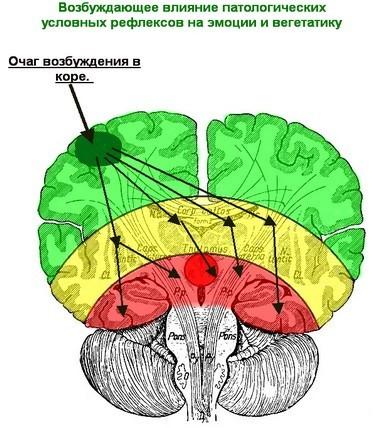
Thus, we see that the vegetative level directly we can not influence. Only indirectly, physical training, tempering, and most importantly taking care of yourself and good knowledge of your body and its needs and resources. It is very important to study yourself and understand your body's signals, like a good mother feels about her baby crying. We must ourselves become these good mothers. In terpii important when the psychologist becomes a mom and more importantly when this can be a therapeutic group.
At the level of limbika very important work with increasing sensitivity to your body. It is important to learn to distinguish the slightest signals and understand what emotion they form. Train containerwith affects, to learn to feel good about your boundaries and safely to protect them. Here I mean all types of family patterns when the boundaries are blurred and the system is the identified patient.
At the level of GNI the us is the closest and most studied. But the problem is that work only with the cortex and with awareness of their feelings and behavioral patterns are not sufficient for recovery. Or even for the correction of health with autonomic dysfunction. It is important to pay attention to all three levels.
The difficulty in working with such clients is that even doing in therapy are all described, it is very difficult to achieve good health. As the client, leaving the psychologist's office is in the society to which his brain adapted. Therefore, these clients and patients is needs huge amount of resources. Usually to provide as many psychological resources can not be in continuous operation and many hours to engage in self-regulation too, no one can with modern life of the metropolis. Because this is the kind of pace and that amount of people around and not ready person with a VSD. So, I think it is very important to have the ability of medical support to such clients/patients.
At least in the initial stages of therapy and in crises. Because resource therapy is not enough to cope with the dysfunction and autonomic, and limbic components.
Now I think that despite the fact that in people with autonomic dysfunction, found many psychological difficulties with boundaries, with sensitivity to yourself and so on. however, to cure and correct this dysfunction therapy impossible. At least once and for all. Here the whole difficulty is that the nervous system of these people are not imprisoned for the peaceful life.
In a population always have different species for different functions. If a person feels good in the fire or in a combat situation, can not ignore the pain and act quickly, then this person is indispensable to the population in extreme conditions. A peaceful life in the modern metropolis, such people very difficult. They can't every day to 8.00 am to go to work. It is impossible for their brain. Most likely some of these characteristics are transmitted not only through family system, but also genetically. At least the excitability of unequal population systems is an inherent characteristic and does not change throughout life. This was written by Pavlov.
And a few words about the so-called "spring exacerbation" of mental illness and dysfunction. Genetically we have over tens of thousands of years established a way of survival when the spring had very tense and a lot a lot of work quickly. Survived those whose vegetatio cope with the workload and the stress. And in the darkest time of the year when the day is short, on the contrary it was necessary to rest, recover and gain strength. So seasonal fluctuations are stitched we have in the hypothalamus and demand in the spring, with increasing solar, a lot of work physically, not to spend hours in the office. And in winter, on the contrary much sleep, and not to drag in the dark a child in kindergarten and school. Accordingly, due to the dramatically changed conditions of life, many people suffer from maladjustment and the consequent diseases. published
Author: Natalia Tereshchenko
P. S. And remember, only by changing their consumption — together we change the world! ©
Join us in Facebook , Vkontakte, Odnoklassniki
Source: natalter.livejournal.com/6169.html

This system works even when the person is in a coma. Or when a body part is paralyzed due to a spinal injury. That is absolutely Autonomous life support system of the person. She, like a good caretaker, prepares our body for any war and any events outside. This system is divided into sympathetic and parasympathetic. PSNS responsible for the stability, rest, restoration and recovery. And the sympathetic nervous system is responsible for the establishment and maintenance of boundaries in the interaction with the external environment and any novelty. But, consequently, its activity interferes with rest and recovery.
We know a huge number of people who have broken the balance of the sympathetic and parasympathetic systems. Doctors often make the diagnosis of VSD (or NDCs). I call it the disease of regulation. In extreme cases of autonomic arousal, we often get panic attacks and hypertensive crises. As well as many various psychosomatic diseases related to the blood vessels, heart, immune system and so on.
The second level of regulation is the limbic system which is responsible for our emotions and passions.

She is anatomically located over the autonomic system and strongly affects it. For example, if a person is angry, the Autonomous system receives the signal: "fight!".
As good surround the caretaker, she immediately begins to reallocate resources and prepare the body for fight or flight: dramatically constrict some vessels and dilate others, the blood flow to the muscles, slows down digestion, activates Dukhanina, releases glycogen from the liver, and so on.
In our real urban life I will not run and no one to fight. Most likely, I have to pretend that all is well and conceal your true feelings, to no one guessed. For example, if yells at me head. Then in my body there are two powerful, oppositely directed process. The most primitive animal part of preparing for war, and the cortex (higher brain deyatelnosti) prohibits action through arbitrary regulation orders to hide the consequences of such training that others do not have guessed what a storm is raging inside of me.
How to hide it? With all the forces squeeze the edges to hold the breath, tense press, shoulder muscles, circular muscles of eyes, jaw, etc. a Huge amount of energy containment is to not give out the internal storm and vegetatio unsuspectingly continues to raise the pressure and accelerate the heart, for example, was able to suppress it, or, finally, you can leave the office and head in the toilet to smoke or to blow off steam, norev to their employees.
Just then may "grab the heart" because it is highly stimulated, and oxygen for its activity is not getting. T we recall that the squeezed ribs and holding your breath so as not to give his excitement to others. It's like simultaneously press the car gas and on the brake.
If you do so often, the natural regulation is violated. On the one hand with good training not to show his anger becomes easier and easier.Many may pretend to be a spy. On the other hand the heart lacks more and more. Blood pressure starts to gallop, it is necessary to drink a sedative and antihypertensive medications.
In the described example, plays an important role and the third level of regulation is our higher nervous activity. That's the one that decides that here and now need to be a spy and not to show their feelings. And, of course, affect GNI and limbic and SIMATIC.

Thus, in diseases of the regulation, or IRR, the problem usually is on all three levels.
1) On the vegetative level we often have an increased sensitivity to the sun, noise, heat, cold etc. it is Possible that some of this is due to innate characteristics, something derived from a family role, some features of traumatic origin, or the result of environmental influences in childhood.
2) On the emotional level we are talking primarily about the basic innate emotions and passions. In a healthy option emotions are based on signals from receptors in the body. If the child is uncomfortable, he cries. If the animal is hurt, it gets angry and defensive. On the basis of such signals from the body and from the senses, the child forms the idea of the external environment where the distance becomes dangerous. And on what distance it is safe and it is interesting to observe a particular phenomenon.
The system signals about opasnosti/security and psychological boundaries of a person. We rarely notice these sensations. But when they have formed into emotions we already understand that something is wrong. Emotions and feelings are signals to the cortex that a certain requirement is satisfied or not satisfied. For us it is particularly important the connection between body sensations, emotions, feelings and ideas about these feelings in our experience, as well as behavioral actions. Often this relationship the child is not formed, and became a grown man he can do any action (e.g., curiosity) to be perceived as sexy. Or the woman believed that she had shortness of breath from asthma, and it was an orgasm.
At VSD we see very often, such violations may be caused by the lack of development of these relations, or an injury that destroyed the links between the different parts of our psyche.
3) At the level of GNI are all our acquired reflexes that were once adaptive, but now it's become obvious to interfere. This is what we usually work in therapy: entracte, pathological patterns, work situation, etc .
Foci of excitation in the Central nervous system sends constant impulses in the emotional and vegetative sphere, and thus support a continuous state of anxiety, readiness limbic and vegetative. And we have all those unpleasant symptoms of VSD and neurosis, they are trying to fight.
For example, if there is a belief that everything in my life should be perfect and it is built into every functional system for evaluating my work and every time leads to an alarming expectation that I'd screw up and the real dissatisfaction with the result, that a lesion in the bark holds in perpetual tension the whole brain. And we have these centers a great many. Who have been in therapy he knows.

Thus, we see that the vegetative level directly we can not influence. Only indirectly, physical training, tempering, and most importantly taking care of yourself and good knowledge of your body and its needs and resources. It is very important to study yourself and understand your body's signals, like a good mother feels about her baby crying. We must ourselves become these good mothers. In terpii important when the psychologist becomes a mom and more importantly when this can be a therapeutic group.
At the level of limbika very important work with increasing sensitivity to your body. It is important to learn to distinguish the slightest signals and understand what emotion they form. Train containerwith affects, to learn to feel good about your boundaries and safely to protect them. Here I mean all types of family patterns when the boundaries are blurred and the system is the identified patient.
At the level of GNI the us is the closest and most studied. But the problem is that work only with the cortex and with awareness of their feelings and behavioral patterns are not sufficient for recovery. Or even for the correction of health with autonomic dysfunction. It is important to pay attention to all three levels.
The difficulty in working with such clients is that even doing in therapy are all described, it is very difficult to achieve good health. As the client, leaving the psychologist's office is in the society to which his brain adapted. Therefore, these clients and patients is needs huge amount of resources. Usually to provide as many psychological resources can not be in continuous operation and many hours to engage in self-regulation too, no one can with modern life of the metropolis. Because this is the kind of pace and that amount of people around and not ready person with a VSD. So, I think it is very important to have the ability of medical support to such clients/patients.
At least in the initial stages of therapy and in crises. Because resource therapy is not enough to cope with the dysfunction and autonomic, and limbic components.
Now I think that despite the fact that in people with autonomic dysfunction, found many psychological difficulties with boundaries, with sensitivity to yourself and so on. however, to cure and correct this dysfunction therapy impossible. At least once and for all. Here the whole difficulty is that the nervous system of these people are not imprisoned for the peaceful life.
In a population always have different species for different functions. If a person feels good in the fire or in a combat situation, can not ignore the pain and act quickly, then this person is indispensable to the population in extreme conditions. A peaceful life in the modern metropolis, such people very difficult. They can't every day to 8.00 am to go to work. It is impossible for their brain. Most likely some of these characteristics are transmitted not only through family system, but also genetically. At least the excitability of unequal population systems is an inherent characteristic and does not change throughout life. This was written by Pavlov.
And a few words about the so-called "spring exacerbation" of mental illness and dysfunction. Genetically we have over tens of thousands of years established a way of survival when the spring had very tense and a lot a lot of work quickly. Survived those whose vegetatio cope with the workload and the stress. And in the darkest time of the year when the day is short, on the contrary it was necessary to rest, recover and gain strength. So seasonal fluctuations are stitched we have in the hypothalamus and demand in the spring, with increasing solar, a lot of work physically, not to spend hours in the office. And in winter, on the contrary much sleep, and not to drag in the dark a child in kindergarten and school. Accordingly, due to the dramatically changed conditions of life, many people suffer from maladjustment and the consequent diseases. published
Author: Natalia Tereshchenko
P. S. And remember, only by changing their consumption — together we change the world! ©
Join us in Facebook , Vkontakte, Odnoklassniki
Source: natalter.livejournal.com/6169.html









